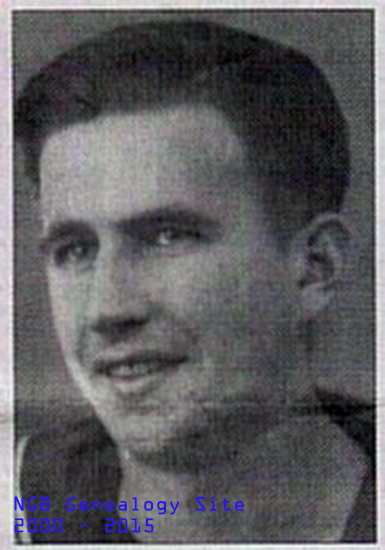Donated by Helen Whiffen
Stranded in Malta
by Ron O'Keefe
Special to the GEORGIAN
I was one of the "First 200" Newfoundlanders
to enlist in November 1939, at just 20 years old. Churchill said "send
me Newfoundlanders", because we were known as small boats men and
that's what he needed.
We never had any training or anything, but when we landed in England
on December 15, we were the first troops from the entire Empire to set
foot there.
I came home from the British Navy with nine medals, but the one that
tells the best story is my Maltese Star.
After a while, I got fed up with boarding boats in Greenock, just outside
of Glasgow, so I put in for a course and went to torpedo school - became
a Leading Torpedo Operator. I was put aboard the Manxman, the only Newfoundlander
on her. She was a mine-laying cruiser, one of the fastest in the fleet.
We sank a few boats in the Mediterranean and then were sent to Gilbraltar
to pick up some troops and once we had them safely down below, we ran
on to Malta. It only took us 11 hours. And then we did it again, three
or four times, before we arrived back in Malta and got our first shore
leave in five or six weeks.
I was among the first group to go ashore and, while we were there, the
Italians came with a big air raid and the ship had to haul out and leave
us. Malta was being crucified because Italy was so close, and they flew
over dropping bombs all the time.
There was nothing on the island, no food, nothing. We were given a tin
of corn beef to do us a week. I couldn't sleep, never really got a chance
to sleep. We stayed in little huts on the hills and manned the anti-aircraft
guns. Three months I was there and let me tell you, it wasn't easy.
To see the people, how they were suffering on Malta, was pitiful. The
whole island only had about 15 or 20 sailors, and a few army guys, and
we hardly had any ammunition. The Italians just came in hordes, dropping
bombs everywhere, all because Malta has a dry dock where the Mediterranean
fleet would bring their ships for repairs.
I was frightened all the time. The siege of Malta was the worst I've
ever seen and all we could do for the people was to help bury their
dead. They never had anything, not even a chance.
Finally the British got a convoy into Malta, three battleships - and
they managed to break up the siege. I was put aboard one of those battleships
and made my way to Alexandria, in Egypt.
By the time the war ended, I was off the coast of Norway. We went ashore
and found about 60 German U-Boats on the docks, just waiting to be put
out to sea. We hauled them out and destroyed them; by the time we were
done, the war was two weeks over and - with my wife Barbara, from London
- I finally came home.
|


![]()
![[Recent]](../../recent.gif)
![[Home]](../../home.gif)